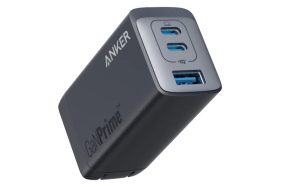Nearly a year has passed since the public debut of ChatGPT, and its evolution during this period has been truly remarkable. In just over 11 months, OpenAI’s chatbot has gained the ability to write code, process information across different formats, and extend its presence across the internet through APIs. During OpenAI’s DevDay keynote address in San Francisco, CEO Sam Altman and other executives introduced ChatGPT’s latest version, ChatGPT-4 Turbo, along with an exciting new approach to make generative AI accessible to everyone, irrespective of their coding expertise: GPTs!
GPTs are specialized, compact iterations of ChatGPT. Think of them as dedicated apps and features on your phone, but instead of managing a timer or a stopwatch, or a digital assistant transcribing your voice commands into a shopping list, GPTs can be trained to perform a wide range of tasks. OpenAI provides eight examples of what GPTs can be used for, from serving as a digital kitchen assistant that suggests recipes based on your pantry contents to acting as a math tutor for your kids’ homework or becoming a Sticker Wiz that transforms your creative ideas into customized stickers delivered to your door.
The new GPTs build upon the company’s existing Custom Instructions feature introduced in July. OpenAI acknowledges that many power users were already reusing and updating their most effective prompts and instructions, a process that GPT-4 Turbo will now handle automatically as part of its update to seed parameters and a focus on delivering reproducible results. This empowers users with greater control in customizing GPTs to their specific requirements.
Users won’t need an in-depth understanding of JavaScript programming. With GPT-4 Turbo’s improved code interpretation, retrieval, and function calling capabilities, along with a significantly expanded context window size, users can create and develop their GPTs using natural language.
Community-created GPTs will be easily shareable, initially between users, with OpenAI planning to launch a centralized storefront later this month. In this storefront, “verified builders” can post and share their GPTs. Popular GPTs may ascend a leaderboard and potentially generate income for their creators based on usage.
GPTs will be accessible to both regular users and enterprise accounts. Enterprise accounts, like ChatGPT Enterprise introduced earlier this year, enable institutional users to develop their own internal, admin-approved mini-chatbots, tailored to specific tasks, departmental documentation, or proprietary datasets. Enterprise GPTs will be available for these customers starting Wednesday.
Privacy remains a core focus for the company, with additional technical safeguards in place, in addition to existing moderation systems, to prevent the creation of GPTs that violate OpenAI’s usage policies. The company is also implementing an identity verification system for developers to enhance transparency and trust, although the specific details of this process were not elaborated upon.




